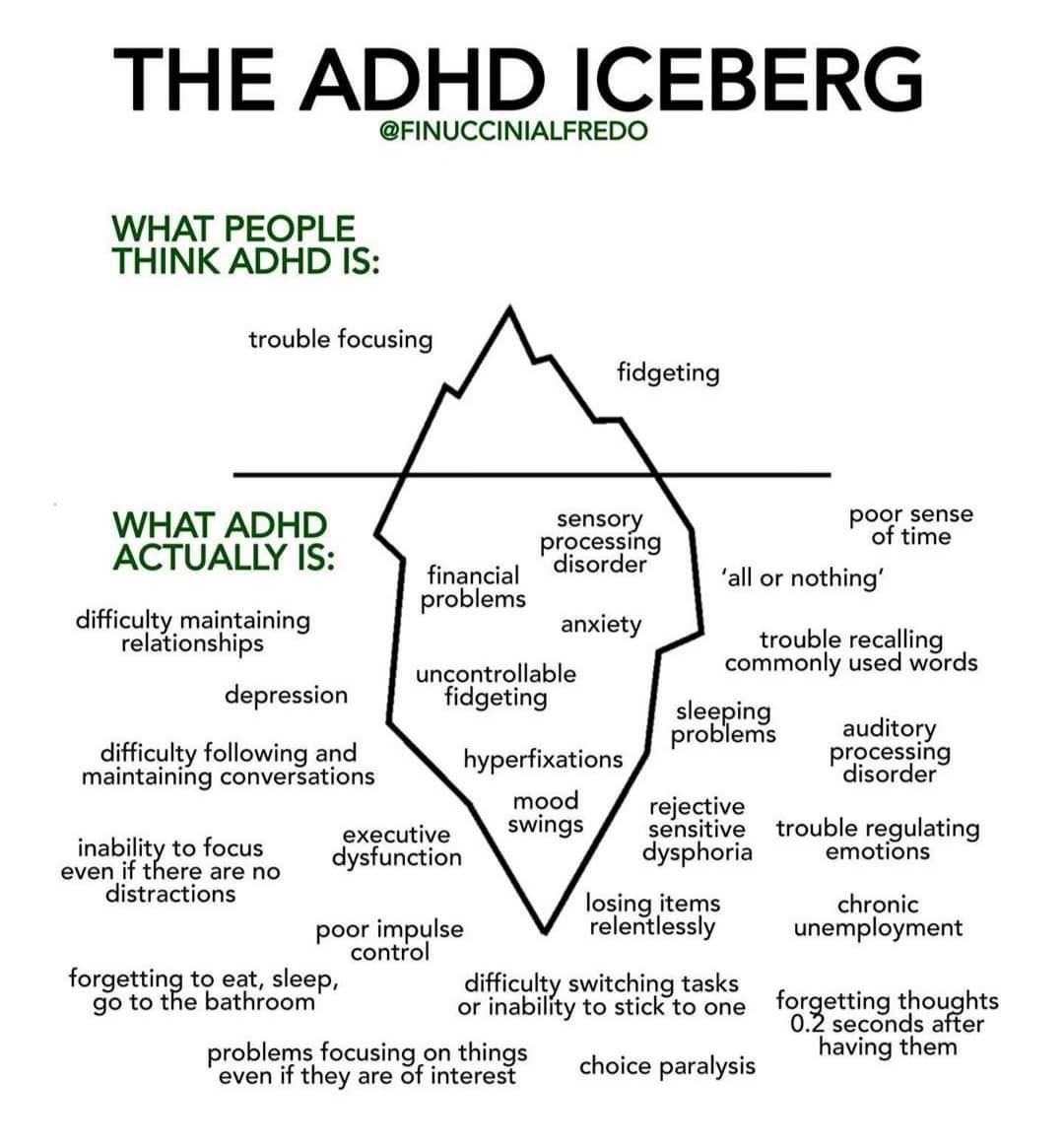Understanding Your Adult ADHD Diagnosis: What To Do Now

Table of Contents
Processing Your Adult ADHD Diagnosis
Accepting the Diagnosis
Acknowledge the diagnosis and allow yourself time to process the emotions it evokes. This may involve feelings of relief, sadness, anger, or even denial. It's perfectly normal to experience a range of emotions after receiving an adult ADHD diagnosis. This isn't a sign of weakness, but a natural response to significant life changes.
- Seek support from loved ones: Share your diagnosis with trusted family and friends who can offer understanding and encouragement.
- Join support groups for adults with ADHD: Connecting with others who understand your experiences can provide invaluable emotional support and practical advice. Look for both online and in-person groups.
- Consider therapy to help process your emotions: A therapist can provide a safe space to explore your feelings and develop coping mechanisms for managing the emotional impact of your diagnosis.
Addressing these feelings is crucial for moving forward with treatment and self-acceptance. Remember, you are not alone in this journey.
Understanding Your Specific ADHD Presentation
ADHD presents differently in everyone. Understanding your specific presentation – whether it's primarily inattentive, primarily hyperactive-impulsive, or combined – is crucial for effective management. Not everyone with ADHD experiences hyperactivity; many struggle primarily with inattention and disorganization.
- Review your diagnostic report: Your report should detail the specific symptoms observed and how they align with ADHD diagnostic criteria.
- Discuss your presentation with your doctor or therapist: They can help you understand the nuances of your individual ADHD presentation and tailor a treatment plan accordingly.
- Research online resources to gain a deeper understanding: Reputable websites and organizations offer valuable information about the different ADHD presentations and their associated challenges.
This self-awareness will be essential for tailoring your treatment plan and managing your symptoms effectively.
Building a Treatment Plan for Your Adult ADHD
Medication Management
Explore medication options with your doctor, weighing the pros and cons of different ADHD medications. Medication isn't a cure-all, but it can significantly help manage symptoms for many individuals. Stimulants and non-stimulants are available, and finding the right one requires careful consideration and monitoring.
- Discuss stimulant and non-stimulant medications: Your doctor can explain the different types of medication, their potential benefits, and their potential side effects.
- Understand potential side effects: Be open and honest with your doctor about any side effects you experience so adjustments can be made.
- Create a plan for monitoring medication effectiveness: Regular check-ups with your doctor are essential to assess how well the medication is working and to make any necessary adjustments.
Finding the right medication and dosage takes time and collaboration with your healthcare provider.
Therapy and Counseling
Consider therapeutic approaches like cognitive behavioral therapy (CBT) or other evidence-based therapies to develop coping mechanisms and address associated challenges. Therapy complements medication and provides valuable tools for long-term management.
- CBT techniques for managing impulsivity and improving focus: CBT helps identify unhelpful thought patterns and behaviors and replaces them with more adaptive ones.
- Exploring emotional regulation strategies: ADHD can be linked to emotional dysregulation, and therapy provides strategies to manage and cope with intense emotions.
- Addressing co-occurring conditions like anxiety or depression: ADHD often co-occurs with other mental health conditions, and addressing these concurrently is essential.
Therapy provides tools for managing ADHD symptoms effectively and improving overall well-being.
Lifestyle Adjustments for ADHD Management
Implement lifestyle changes to support your treatment plan, such as incorporating regular exercise, a balanced diet, sufficient sleep, and stress management techniques. These lifestyle factors can significantly impact your ability to manage ADHD symptoms.
- Regular exercise routines: Physical activity improves focus, reduces stress, and boosts mood.
- Mindful eating habits: A balanced diet provides the nutrients your brain needs to function optimally.
- Prioritizing sleep hygiene: Sufficient sleep is crucial for cognitive function and emotional regulation.
- Practicing relaxation techniques (meditation, yoga): Stress management techniques can help reduce overwhelm and improve focus.
These lifestyle choices play a crucial role in improving focus and reducing ADHD symptoms.
Seeking Ongoing Support and Resources for Adult ADHD
Connecting with Support Groups
Join online or in-person support groups to connect with others who understand your experiences. Sharing your journey with others who "get it" can be incredibly helpful.
- Share experiences: Talking about your challenges and successes with others can be validating and empowering.
- Learn coping strategies: Support groups provide a wealth of practical advice and coping mechanisms.
- Build a supportive community: Connecting with others creates a sense of belonging and reduces feelings of isolation.
Connecting with others facing similar challenges provides valuable emotional and practical support.
Utilizing Online Resources and Communities
Explore reputable online resources and ADHD communities for information, support, and tips. The internet offers a vast amount of information, but it's crucial to select credible sources.
- ADHD-specific websites, forums, and blogs: Many reputable organizations and individuals offer valuable information and support online.
- Educational videos and podcasts: These resources can provide a deeper understanding of ADHD and its management.
These resources provide a wealth of information and ongoing support.
Continued Communication with Your Healthcare Provider
Regularly schedule follow-up appointments with your doctor or therapist to monitor treatment progress, adjust medication if necessary, and address any emerging challenges. This ongoing communication is crucial for successful ADHD management.
- Regular check-ins: These appointments allow for ongoing monitoring and adjustments to your treatment plan.
- Medication adjustments: Medication dosage may need to be adjusted over time to optimize its effectiveness.
- Ongoing therapeutic support: Therapy provides continued support and guidance in navigating the challenges of ADHD.
This proactive approach is vital for managing your ADHD effectively.
Conclusion
Receiving an Adult ADHD Diagnosis is a significant step, but it's also an opportunity for positive change. By actively engaging in treatment, seeking support, and making lifestyle adjustments, you can effectively manage your ADHD and lead a fulfilling life. Remember, the journey to managing your Adult ADHD is ongoing, so prioritize self-care and maintain open communication with your healthcare provider. Don't hesitate to seek additional Adult ADHD Diagnosis resources and support. Take control of your well-being and start living your best life today!

Featured Posts
-
 Buying Tickets For The Capital Summertime Ball 2025
Apr 29, 2025
Buying Tickets For The Capital Summertime Ball 2025
Apr 29, 2025 -
 Unexpected Collaboration Ariana Grande And Jeff Goldblum On I Dont Know Why
Apr 29, 2025
Unexpected Collaboration Ariana Grande And Jeff Goldblum On I Dont Know Why
Apr 29, 2025 -
 2025 Nfl International Games The Packers Potential Double Header
Apr 29, 2025
2025 Nfl International Games The Packers Potential Double Header
Apr 29, 2025 -
 Pw Cs African Retreat Exit From Senegal Gabon Madagascar And More
Apr 29, 2025
Pw Cs African Retreat Exit From Senegal Gabon Madagascar And More
Apr 29, 2025 -
 Riviera Blue Porsche 911 S T Exceptional Condition Now Available
Apr 29, 2025
Riviera Blue Porsche 911 S T Exceptional Condition Now Available
Apr 29, 2025
